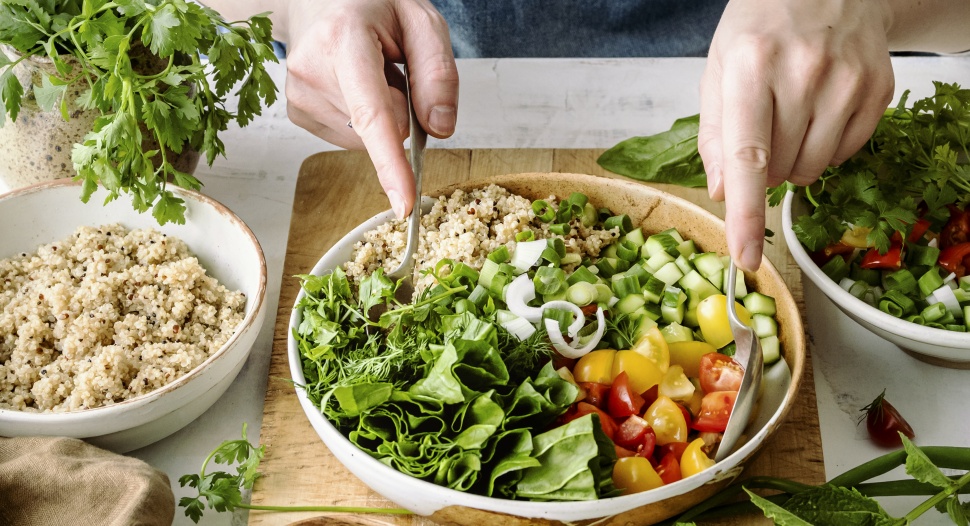By Karina Heinrich
International Certified Integrative Nutritionist & Founder of The Karina Method
It’s easy to get caught up with the hype of an ever-changing health trend landscape. It can be quite overwhelming to know which claims are backed by research and which you should definitely say no thanks to. Low carb. No carb. Gluten-free. Fat-free. High-fat. Protein only. Fasting. Blood type. Keto. Paleo. The list goes on and on. By the time you try one of these new diets, the media has already moved on and is covering the next “best” thing out there, and it’s probably not the tedious and confusing eating plan you have decided to take on for the past two weeks.
Luckily, there happens to be one way of eating that nutritionists and scientists agree promotes health and helps to prevent diseases. A plant-based diet is widely supported and focuses on eating fresh whole ingredients.
Research shows filling the body with minimally plant-based foods improves overall health and stimulates weight loss. It includes not only fruits and vegetables, but also nuts, seeds, oils, whole grains, legumes, and beans. Plant-based eating is more than a flexible idea that refers to reducing one’s consumption of foods derived from animals. This doesn’t mean that you are vegetarian or vegan and never eat meat or dairy. Rather, you are proportionately choosing more of your foods from plant sources.
Plant-Based Diet 101
There is truly no exact definition out there on what a plant-based diet really encompasses, and it has varying levels of how strict you can be on this diet. It’s also not really a diet, but more of a lifestyle that is easy for just about anyone to implement who has access to fresh whole foods. This way of eating is nothing new and part of the reason it has been studied and its health benefits documented. Studies have found that people following the Mediterranean diet (which is mostly a plant-based diet), composed of veggies, fruits, olive oil and low in red meat, are healthier overall and even have lower risks of cancer.
The values behind a plant-based diet also goes deeper, especially with customers who do not approve of the conditions in which animals are raised and treated in traditional factory farming.
Plant-Based Basic Principles
- Simple, Clean and Organic when possible
- Mainly Encompasses Whole Foods:
- Fruits
- Vegetables
- Whole grains
- Legumes
- Nuts and Seeds
- Limits Animal Products:
- Meats
- Dairy
- Eggs
- Seafood
- Honey
- Plant-Based Vegetarian:
- Follows all of the basic principles
- Avoids meat, fish and poultry
- Includes eggs and dairy
- Plant-Based Vegan:
- Follows all of the basic principles
- Avoids all animal products
Let’s Talk About Weight Loss
A plant-based diet requires no calorie counting, food weighing, ratios or tricks. You just need fresh whole foods, fruits and veggies, grains and legumes. Study after study has shown that plant-based diets are one of the most beneficial lifestyle changes you can make for your overall health and to facilitate lasting weight loss. The high fibre contents (hello, feelings of satiety) of a plant-based-diet plus eliminating processed foods is a powerful combination for ridding the body of excess body weight.
Loving The Long List Of Health Benefits
A plant-based diet is not only amazing for your weight loss efforts, but it may also majorly lower your risk for many chronic diseases. Double plus!
- Boost Brain Power: Diets rich in vegetables and fruits may lower and your chances of cognitive decline, especially Alzheimer’s disease. Plant-based diets are chalked full of powerful antioxidants, nutrients and vitamins that can slow and reduce the risk of developing cognitive dementia.
- Keep Cancer Away: Studies have shown that following a plant-based diet may reduce your risk of developing many types of cancer, especially gastrointestinal cancer. Vegetarians in particular have been studied, and research shows that following a high plant-based vegetarian diet has the greatest health benefits.
- Down That Risk For Diabetes: Following a plant-based diet may reduce your risk of developing diabetes, especially Type 2, when compared to others who follow unhealthy diets. Plant-based diets may also improve blood sugar levels in people with diabetes.
- Reduce Exposure to Chemicals: A plant-based diet will minimise the risk of ingesting disease-associated chemicals, hormones, and antibiotics.
- Eat Healthy To Keep Heart Disease Down: Plant-based diets rich in vegetables, fruits, whole-grains, legumes and nuts significantly lower your risk of developing heart disease. Fruit juices, refined grains and sugary drinks may actually increase your risk for heart disease.
Plant-Based Deliciousness: Foods to Eat & Not to Eat
A plant-based diet is often a big change for people who are used to filling their plates with lots of animal products. Meats, poultry, seafood, eggs and dairy should be a compliment to your diet rather than the main course.
- A Plant-Based Food List (Some Top Favourites):
- Vegetables: Broccoli, kale, spinach, carrots, asparagus, peppers, celery
- Starchy Veggies: Sweet potatoes, butternut squash, acorn squash
- Fruits: Berries, apples, pears, bananas, tomatoes, avocados
- Legumes: Chickpeas, lentils, black beans, red beans
- Whole grains: Brown rice, old-fashioned oats, quinoa, whole-wheat pasta
- Healthy fats: Olive oil and coconut oil
- Nuts and seeds: Almonds, pistachios, cashews, pumpkin seeds, flaxseeds
- Unsweetened plant-based milks: Almond milk, cashew milk, coconut milk
- Plant-based protein: Tofu, tempeh (plus the beans, nuts and legumes above
- Animal-Based Meat Replacement Alternatives
- These alternatives can offer the familiar flavours and textures of meat while often being more sustainable and ethical
- Frozen animal-based meat replacement alternatives are gaining popularity for their convenience
- Frozen food has shaken off its reputation as an unhealthy and unnatural product. There are noe more diverse flavours and healthier options available. Shelves are stocked with ready-to-eat meals, sides and snacks that balance the health and environmental concerns of modern consumers with their busy schedules and the need for quick, easy options.
- Popular brands include Omni and EPL (Eat Plant Love)
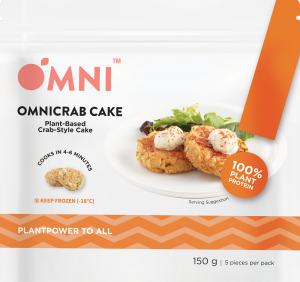
Omni Plant-Based Crab Cake
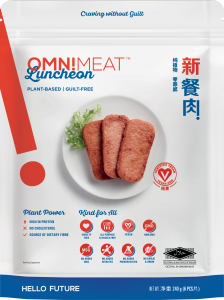
Omni Plant-Based Luncheon
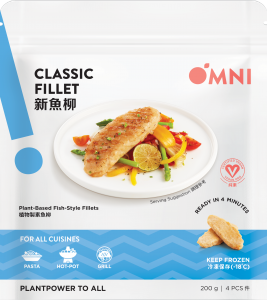
Omni Plant-Based Classic Fillet
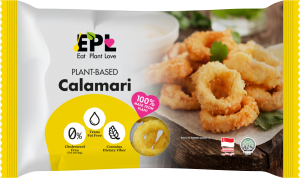
EPL Plant-Based Calamari
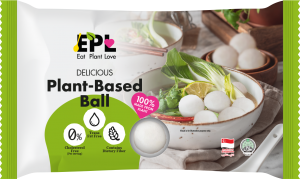
EPL Plant-Based Ball
Another popular brand is ALTN that offers meat-free lasagne, gyozas, and even glutinous rice!
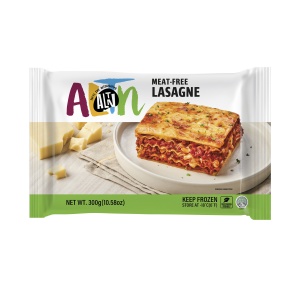
ALTN Meat Free Lasagne
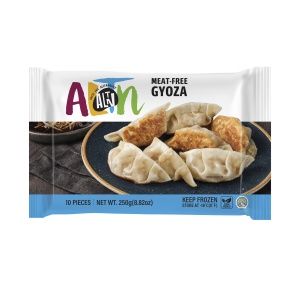
ALTN Meat Free Gyoza
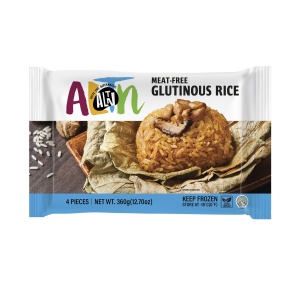
ALTN Meat Free Glutinous Rice
Plant-Based Bottom Line: A Little Goes a Long Way
You do not have to go 100% plant-based to add vitamins, essential nutrients and antioxidants into your diet. Make a conscious effort to eat MORE vegetables, MORE fruits, MORE whole grains, MORE healthy fats and MORE nuts and consume LESS meat, sugars and refined grains. You may just find yourself with a whole lot more energy, less pounds on your body and brighter skin!
As the saying goes, “You are what you eat.” You have control over what foods you put into your body. Why not choose food that nourish every cell and increase your chances of staying healthy? More broccoli? Yes, please!
These are just some of the perfect foods to include in your diet if you’re trying to ease into plant-based eating.
References:
https://www.winsightgrocerybusiness.com/products/study-consumers-are-choosing-plant-based-foods-health-convenience
https://www.entrepreneur.com/living/plant-based-in-a-pinch-the-frozen-food-aisle-is-turning/356161
https://straydoginstitute.org/plant-based-food/
